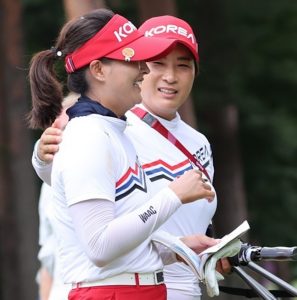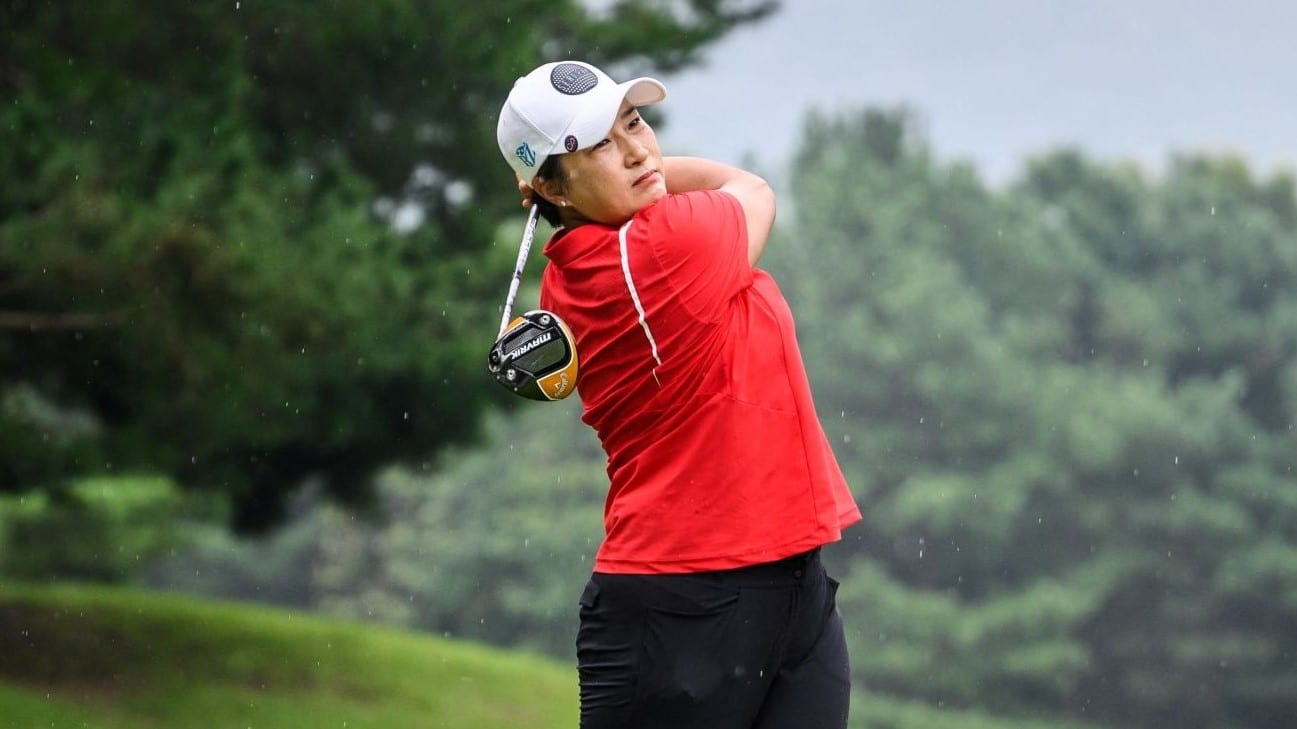Five years after retiring, the woman who paved the way for South Korean golfers to dominate the ladies’ game still exudes a sense of steely determination on the course.
Pak Se-ri addresses the ball before striking it straight and true with as smooth a swing as at the peak of her career.
Pak won the first of her 25 LPGA titles – the 1998 US Open – in her rookie season at the age of 20, the first Asian to win the oldest women’s Major.
Her success inspired a generation of South Korean women to follow in her golf-shoed footsteps, dubbed the ‘Pak Se-ri kids’.
It was a moniker that weighed on her at first, giving her a “sense of burden” rather than pride, she told AFP.
And golf is perhaps the ultimate individual sport, with players having to confront their own weaknesses and team competitions such as the Solheim Cup rare exceptions rather than the rule.
“I went to the US to solely pursue my personal goal,” she said in her first international media interview for three years. “But at one point my dream also became someone else’s.”
Later she began to share her LPGA knowledge with her fellow Korean competitors, as her mindset shifted “to focus on what kind of a role model I could be”.
The ‘Pak Se-ri kids’ phenomenon has endured and strengthened: South Korean women won at least one Major every season from 2010 until this year.
Now three of the world’s top-five women golfers are South Korean, including No 2 Ko Jin-young, with seven of Korean nationality or descent in the top 10 – although the country’s male golfers are nowhere near as globally competitive.
‘Entirely devoted to golf’
Women’s world No 4 Kim Sei-young, who has 12 LPGA wins, told AFP: “If it wasn’t for her, we would not have even recognised there was a career path in the US LPGA. She is a trailblazer.”
Pak puts the women’s dominance down to “gruelling practice and strong mentality”.
“There are no time limits on training for Korean golfers,” she told AFP. “Their golf-life balance is entirely devoted to golf.”
Western players have a different approach, she believes.
“They do their best at golf within their capability. But when they are done for the day, they find something else they enjoy.”
Koreans would see that as risking their routine and focus, she says.
But the pressure to succeed and the unrelenting training regimen can ultimately be overwhelming.
“Everything is defined by tournament outcome and that makes life difficult,” she said. “A burnout could come in an instant. It did for me.”
After winning the Michelob ULTRA Open in 2004, she missed the cut in her next event and went into a two-year slump.
“I had just won a competition a week before but found myself a totally different person on the green five days later.”
It was not until the 2006 McDonald’s LPGA Championship – one of five Majors on the LPGA tour – that she recorded her next victory, winning a head-to-head playoff with a birdie on the first extra hole.
Sporting spirit
Since retiring from the game, Pak has built successful new careers both on television – coaching celebrities in one show and camping with younger athletes in another – and in business as co-CEO of sports marketing firm Baz International.
She remains instantly recognisable: in the space of three holes on a weekday afternoon at the Silk River Country Club in Cheongju – which hosts the Pak Se-ri Invitational tournament later this month – around a dozen fans approached to ask for selfies.
All were granted, with Pak friendly and professional at the same time.
But when a cameraman stood in front of her to film a tee shot she warned him: “You’ll either end up in hospital or you won’t make it alive.”
Pak coached the South Korean women’s golf team at this year’s Tokyo Olympics for the second time, but they failed to replicate Park In-bee’s Rio 2016 gold and came home without a medal.

She feels a “heavier weight of responsibility” as a coach than as a competitor.
“As a player, you just focus on yourself,” she said, but a coach’s main mission is to “help players bring the best out of themselves”.
The South Korean Olympic performance was marred by online abuse of triple-gold medallist archer An San, with misogynists accusing her of being a feminist for having short hair.
But many female athletes keep their hair short to avoid distraction in competition, Pak noted – as she did herself.
The archer “trained five years this time for the Tokyo Games and her fate could be decided in the span of three to five minutes”, she added.
And her critics “do not understand the spirit of sport”.
© Agence France-Presse
Photo: Anthony Wallace/AFP via Getty Images





